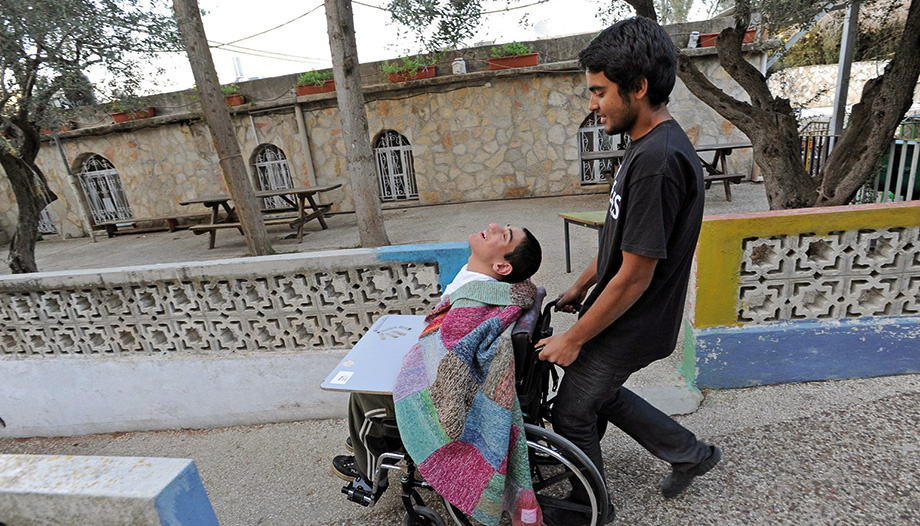"A world without borders, without prejudice against people with disabilities, where no one has to face the challenges of personal survival alone, is a world we must strive to build.". This is what the Pontifical Academy for Life writes in its recent Note dedicated to the need, for the Church and for every person of good will, to restore the right importance to the care and support of people with disabilities and those who care for them.
The starting point for this document has been the pandemic which, in addition to highlighting the interdependence of every person, has shown the limits of uncertainty, fragility and limitations. In the case of people with disabilities, it has also revealed an increased risk of serious illness or death from Covid-19, due to biological factors and unequal access to health care and other necessary medical support.
In fact, many disabled people had difficulties in obtaining accessible information on how to prevent infections, or encountered obstacles in accessing texts, vaccinations or treatment in health centers, in addition to the negative effects of prolonged isolation in their homes (anxiety, loneliness, helplessness, despair and even domestic violence). There are also other types of discrimination, linked to "discrimination against women and children".an enabling bias, pervasive in health systems, which views disability negatively and perceives people with disabilities as having lives that are less worth preserving than those of people without such disabilities"The Note of the Pontifical Academy for Life denounces.
The document highlights three fundamental ethical concerns. First, that of "promote solutions". for the specific needs of people with disabilities, enabling them to benefit from public health policies and interventions and involving them in planning and decision-making processes. And it is necessary to go beyond framing disability in public health and health care simply "in biomedical termsThe aim is "to consider it in the broad spectrum of medical specialties and other areas of government and society. Finally, it is a priority to "developing public health frameworks based on solidarity"giving a fast track to the poor and vulnerable, both locally and globally.
The lesson that can be drawn from the pandemic, as it relates to people with disabilities, is to learn to "adopting a new perspective on the meaning of life", accepting "interdependence, mutual responsibility and care for others as a way of life and promotion of the common good".as the Church has always taught.
The document -following the March 30, 2020 document on Pandemic and universal fraternityto the July 22 document on Humana Communitas in the age of the pandemic and to the document of February 9, 2021 on Old age: our future and which is drafted as usual with the Vatican's Covid-19 Commission - ends with seven practical recommendations.
Specifically, it calls for consultation with people with disabilities and their families "in the design and implementation of public health policies". Catholic organizations that manage health care facilities are asked to "take the leadThe aim is to ensure that the pandemic is not a "public-private partnership" in this area; to give priority also to people with disabilities in access to vaccines; to avoid discrimination in the allocation of health resources; to promote global cooperation and all kinds of "public-private partnerships". Finally, it must be ensured that, precisely because of the consequences of the pandemic, people with disabilities are not left behind in the long queue to use the health services initially suspended by Covid-19.
The note bears the signature of the President of the Pontifical Academy for Life, Archbishop Vincenzo Paglia and Chancellor Renzo Pegoraro.








